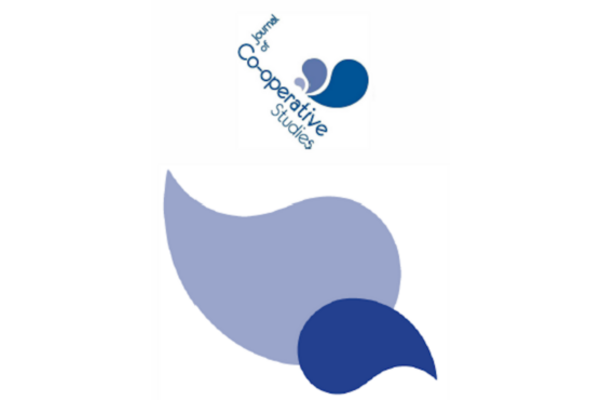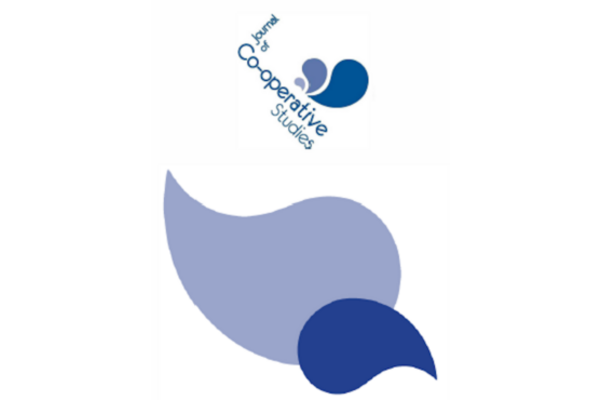Guest editorial
Education special issue
Maureen Breeze, pp. 3-5
This special issue presents a small selection of the latest findings and understandings of co-operation in education from the international context. These push the boundaries of the field through the investigation of fresh applications and synergies that involve co-operation in education.
Papers
England - Co-operative Schools: A Quiet Revolution
Julie Thorpe, pp. 6-9
An update on the recent rapid growth of the co-operative school sector in the UK, this article explores the conditions that have led to the quick-growing interest in, and adoption of, the multi-stakeholder co-operative model of school governance. It reflects on the challenges of embedding values and implementing co-operative approaches in education in landscape of competition and uncertainty for schools.
Scotland - Co-operative Education in an Independent Scotland?
Hugh Donnelly, pp. 10-12
In 2014 Scotland will hold a referendum on independence but regardless of the outcome there are long-standing and significant differences between the Scottish education system and that in the rest of the UK. Whereas in recent years England has seen the emergence of many co-operative trust schools, this has not been the case in Scotland where the approach has been more to support the placing of co‑operatives at the heart of the curriculum. This has involved the support of the Co‑operative Education Trust for Scotland which has developed a number of strategies. This short discussion piece briefly describes the education context in Scotland, the likelihood of the adoption of the co‑operative school model, the Co-operative Education Trust for Scotland role in promoting co‑operation in education and other potential opportunities for co-operation in education. It also speculates as to whether anything would change after the referendum given either a “Yes” or “No” majority
England - Co-operative Education — A Perspective from a Woodcraft Folk Volunteer
Ellen Gibson, pp. 13-14
This short article is a personal reflection by a Woodcraft Folk leader and volunteer about the meaning of co-operative education. It is suggested that engagement with wider notions of co-operation should be a more common aim in both formal and informal education. Co-operative education should not be confined to the formalised and conscious learning environments of schools, universities and other institutions; co-operative living is based on values and principles and thus should be a philosophy embedded in all forms of learning. The Woodcraft Folk strives to educate for social change. A hope is that the type of education it promotes is valued as highly and practiced as widely as that traditionally offered within the education establishment.
El Salvador - Learning Co-operatively under Challenging Circumstances: Ethnography of Co‑operation Among Pupils in a High-Risk School in the Metropolitan Area of San Salvador
Christine Schmalenbach, pp. 15-23
This paper reports on an on-going study of co-operation at a school in a high-risk context in the metropolitan area of San Salvador, the capital of the Central American nation of El Salvador. The study takes an ethnographic approach and focuses mainly on the relation between culture, contextual factors and collaboration and co-operation of pupils in the school. The Transformative Paradigm according to Mertens (2010) was chosen as the theoretical framework for the study. It emphasises social justice, human rights and the inclusion of voices that have not been taken into account sufficiently. Within this paradigm, the principles of the Postcolonial Indigenous Methodologies according to Chilisa (2012) are embraced, which stress (among other things) the relationship with research participants, respect and reciprocity. As the study is still in progress, no final conclusions are given yet. The paper provides an overview of the background to the study, the theoretical assumptions, the chosen methodology and some preliminary findings.
Italy - Enhancing Intercultural Sensitivity through Group Investigation — a Co‑operative Learning Approach
Marialuisa Damini & Alessio Surian, pp. 24-31
This paper presents a two year research project that addressed the ways teachers observe, implement and experience the development of student intercultural sensitivity through co-operative learning activities and especially through utilising the Group Investigation strategy. The study also sought to understand to what extent the combination of an intercultural competence model such as the Developmental Model of Intercultural Sensitivity (DMIS) (Bennett, 1993) and the use of qualitative measures, such as critical incidents and questionnaire data, can be instrumental in identifying students’ viewpoints and ‘competence’ in relation to cultural diversity. The scope of this paper places limits on the publication of detailed results of the research; however, key findings are shared and discussed. The analysis of the quantitative data gathered, demonstrated that students became more receptive to issues of diversity. These results were consistent with the analysis of comments related to critical incidents and with the qualitative data gathered through teacher interviews and student focus groups. The study indicates that co-operative learning and in particular the group investigation strategy, can be effective in triggering positive intercultural sensitivity.
USA - Integrating Co-operative Community-Based Research (CBR) into Doctoral Leadership Studies
Laurie Stevahn, pp. 32-45
This study describes how co-operative learning and community-based research were combined and implemented as co-operative community-based research in a first-year doctoral educational leadership course at Seattle University. Participants were 18 students who constituted a newly admitted cohort. A mixed-methods longitudinal case study design was employed to examine (a) perceived factors that facilitate and/or frustrate co-operative community-based research; (b) demands that this innovation places on faculty, community partners, and students; and (c) principles for best practice. Results revealed a set of factors that interact with basic elements of co-operative learning to drive or deter success, including team growth/development (over time), group setup/norms (for functioning), team dynamics (particularly conflict resolution), perceptions of time (that generate emotional reactions to perceived progress) and participation of faculty and community partners (most helpful when continuous, responsive, and supportive). These findings suggest that faculty, community partners, and students engaged in co-operative community-based research should constantly seek clarity (of purpose, procedures, products), get concrete (use templates), communicate (frequently, respectfully, personally, mutually) and confront conflict (constructively).
South Africa - Co-operative Learning — an alternative Approach to Large Group Lectures with Postgraduate Students: a Case Study
Rachael Jesika Singh, pp. 46-52
This paper reports on an experimental pilot which introduced co-operative learning into a research development programme for postgraduate students. It took place at Limpopo University, a rural university in South Africa, with the intention of providing an alternative teaching approach to the typical large group lectures. The students were from a variety of disciplines. All were seeking assistance on research-related topics, so that they could produce sound proposals and quality dissertations and theses. The principal research question was: “How can co-operative learning be used within a large, postgraduate university class and is it effective?”. Qualitative techniques were used, including interviews with students, observations, and documentary evidence in the form of photographs. The findings of this research indicate that students enjoyed small group discussions; they were able to share ideas and opinions, and were more focused when they worked co-operatively together. The findings also showed the important need for the facilitator to be thoroughly prepared for classes organised in this way. The study recommends that the use of co-operative learning in higher education classrooms with large class sizes is worthy of further investigation and recommends that a larger scale study is undertaken.
Singapore - Professional Learning Communities in Singapore Schools
Daphnee Lee, Helen Hong, Wanying Tay and Wing On Lee, pp. 53-56
This paper describes a state-led initiative that aims to instil a co-operative approach to teacher learning through the implementation of Professional Learning Communities in Singapore schools. These Professional Learning Communities bring teachers together to collaborate in communities of reflective practitioners. The paper outlines the background leading to the implementation of this programme, the vision that underpinned the initiative and its practical realisation. The research findings concerning the effectiveness of the Professional Learning Communities initiative provide insights into the process and outcomes. Improvement in teacher professional development is believed to be deeply rooted in the reflective dialogues that emerge in these shared learning contexts made possible by the Professional Learning Communities.
Italy - Co-operative Learning and Education for Sustainable Development
Daniela Pavan and Fabrizio Santini, pp. 57-61
This article presents an approach used by a training and development organisation in Italy, Scintille.it and its support for sustainable development through co-operative learning. It explores sustainable development, Education for Sustainable Development and interpretations of the meaning of co‑operative learning. It recognises the strong synergies between Education for Sustainable Development and co-operative learning and suggests that co-operative learning can be an ideal vehicle for achieving the goals of Education for Sustainable Development. It is presented as a case study as an illustration of an Italian experience of Education for Sustainable Development sustained by co-operative approaches, which shows the evolution from micro (the classroom) to macro (the wider social context).
Singapore - The Many Co-operative Roles Available to Workshop Co-Facilitators
George M Jacobs and Peter Seow, pp. 62-68
Co-operation benefits education, whether it be student-student co-operation, teacher-teacher co‑operation or other forms of co-operative interaction. This paper looks at co-facilitation in conducting workshops and argues that co-facilitators should be actively involved in planning, conducting and debriefing the workshops in which they are involved. The paper discusses twelve possible co-operative roles for workshop co-facilitators and explores some of these roles with reference to Humanistic Psychology, Social Interdependence Theory, Socio-Cultural Theory and Social Constructionism. The co‑facilitator roles are: (i) planning the workshop, (ii) befriending participants, (iii) befriending the workshop facilitator, (iv) providing general assistance, (v) providing technical assistance, (vi) modelling behaviours and tasks, (vii) observing workshop processes, (viii) participating alongside participants, (ix) correcting and clarifying what facilitators have said and done, (x) sharing their own and participants’ ideas, (xi) assessing the workshop’s effectiveness and (xii) understudying the facilitator.
Book reviews
The International Handbook of Collaborative Learning. Edited by Cindy E Hmelo-Silver, Clark A Chinn, Carol K K Chan and Angela O’Donnell.
Robyn M Gillies, pp. 69-70
Interactive Evaluation Practice: Mastering the Interpersonal Dynamics of Program Evaluation. By Jean A King and Laurie Stevahn.
Maureen Breeze, pp. 71-72










